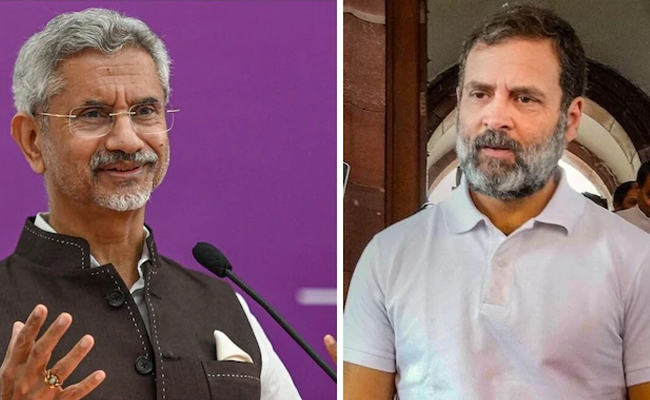
India News

In the context of Operation Sindoor, all political parties in India—including the opposition Congress—unanimously supported the Centre’s decisions and assertive actions. Now that the conflict is over and the atmosphere has returned to calm, any constructive criticism is, of course, welcome. However, the conduct of Rahul Gandhi, Congress leader and Leader of the Opposition in the Lok Sabha, appears to be creating unnecessary confusion through misinterpretations of the Centre’s statements, possibly in pursuit of political mileage.
Rahul Gandhi recently claimed that External Affairs Minister S. Jaishankar admitted to informing Pakistan in advance about Operation Sindoor. He questioned how many fighter jets India lost because of this prior notice, implying negligence or wrongdoing on the part of the government.
Rahul's assertion that forewarning Pakistan led to the loss of Indian jets implies not just a misjudgment—but a national crime. He has repeatedly demanded the “truth” be revealed to the nation, raising his voice in a theatrical tone that seems designed more for drama than debate.
However, Jaishankar’s remarks, when seen in context, were clearly not about operational details. He merely stated that India had warned Pakistan about the consequences of continuing terrorist activities, which is a standard diplomatic move. Prime Minister Narendra Modi had earlier publicly declared that India would hunt down terrorists wherever they hide. Jaishankar’s comments fall in line with this policy stance—not as a tip-off about a military strike.
Misconstruing these statements as evidence of betrayal serves no constructive purpose. Experts argue that such misrepresentations can tarnish the image of the Congress Party rather than strengthen it.
At a time when national security and political unity are paramount, Rahul’s statements—seen by many as deliberately misleading—seem to reflect a strategy of creating controversy for political gain, rather than engaging in meaningful discourse.
In the end, as many observers point out, twisted narratives may win headlines, but they are unlikely to win public trust.
Advertisment